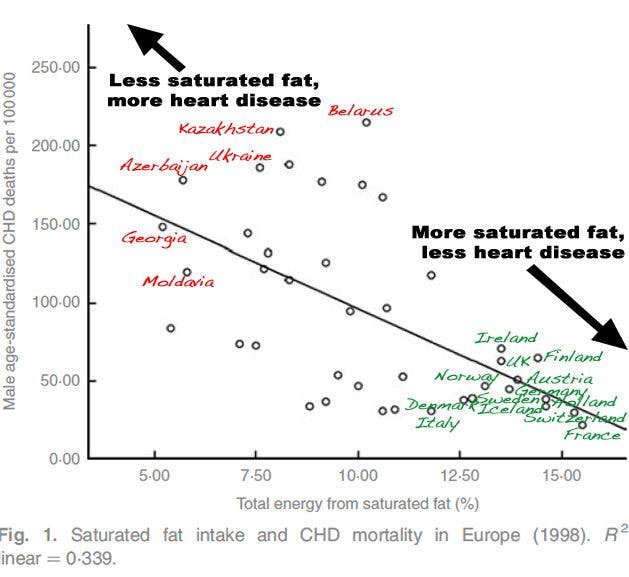 For decades now, the general American population has been neurotically avoiding cholesterol-rich foods for fear of developing heart disease, thanks to the promulgation of the unfortunate Diet-Heart hypothesis. (1)
For decades now, the general American population has been neurotically avoiding cholesterol-rich foods for fear of developing heart disease, thanks to the promulgation of the unfortunate Diet-Heart hypothesis. (1)Those of us that follow a paleo diet are well aware by now that dietary cholesterol does not significantly affect cholesterol levels in the blood or risk for heart disease, and that there is no reason to avoid whole foods with naturally high levels of cholesterol.
However, beyond just ‘not avoiding’ high cholesterol foods, there is a significant reason for us to make a special effort to include many high cholesterol foods in our diet.
The reason? The much under-appreciated B-vitamin called choline, found primarily in cholesterol-rich foods.
If you haven’t heard of choline, or don’t know much about this vital nutrient, you’re not alone. Choline has only been ‘officially’ recognized as an essential nutrient since 1998, when the Food and Nutrition Board of the Institute of Medicine established an Adequate Intake (AI) level of 425 mg per day for women and 550 mg per day for men. (2) Even though it has been deemed a nutrient vital for human health, only 10% of Americans are meeting the conservative AI levels established by the IOM.If you eat a strict paleo diet, you may be closer to meeting your choline needs than the average American, but only if you are regularly including choline rich foods in your diet. The best whole food sources of dietary choline are egg yolks and liver, which are often avoided by many Americans due to unfounded fear of dietary fat and cholesterol. However, these high cholesterol foods are at the top the choline-rich foods list, followed (albeit distantly) by beef, cod, brussels sprouts, and broccoli. (3)
Why is choline such an important nutrient to consider in one’s diet?
Choline has a variety of functions in the body, including the synthesis of the neurotransmitter acetylcholine, cell-membrane signaling, lipid transport, and methylgroup metabolism. (4) In addition, it is an essential component of the many phospholipids that make up cell membranes, regulates several metabolic pathways, and aids detoxification in the body. During pregnancy, low choline intake is significantly associated with a higher risk of neural tube defects in the newborn.Choline deficiency over time can have serious implications for our health. Symptoms of choline deficiency include fatigue, insomnia, poor kidney function, memory problems, and nerve-muscle imbalances. Extreme dietary deficiency of choline can result in liver dysfunction, cardiovascular disease, impaired growth, abnormalities in bone formation, lack of red blood cell formation, infertility, kidney failure, anemia, and high blood pressure. Incredibly, choline deficiency is the only nutrient deficiency shown to induce the development of spontaneous carcinoma. (5)
Chris Masterjohn has written extensively about choline deficiency and its relationship to fatty liver disease which affects as many as 100 million Americans and is often attributed to excess alcohol and sugar consumption by conventional practitioners. After a review of the literature, Masterjohn concludes that choline deficiency plays a role in virtually every type of diet-induced fatty liver model, and that adequate dietary choline is essential for proper liver function. He also suggests that high consumption of dietary fat, including saturated fats, increases the amount of choline required to prevent the accumulation of fat in the liver. (6)
This means that if you’re eating a higher fat diet, it is even more crucial that you include a variety of choline rich foods in your diet.
Another important factor to consider is that while humans are able to produce some level of endogenous choline, some people have a common gene variation that further increases the amount of choline they must consume to satisfy their body’s requirements. (7) These particular people are more susceptible to choline deficiency, and must be especially vigilant about including choline rich food in their diets.As choline is so important, you may be wondering what the best food sources are in order to improve your intake. There are many natural, whole foods that are excellent sources of bioavailable choline, with the best sources being beef liver, poultry liver, and whole eggs. (8) These foods are not only high in choline, but are also very high in many different vitamins and minerals such as as vitamin A, arachidonic acid, DHA, and the B vitamins. (9)
We already know liver is an amazing superfood. Liver from pastured animals is a great source of trace elements such as copper, zinc and chromium, plus highly bioavailable folate and iron. (10)
Liver is also the most potent source of dietary choline that we know of.
For example, a three ounce serving of pan-fried beef liver has over 400 mg of choline in it, compared to less than 80 mg in the same amount of cooked ground beef. (11) While you don’t need to consume beef liver on a daily basis to reap the benefits of this superfood, it should be clear that including pastured liver and other organ meats as part of a nutritionally complete diet is one of the best ways to improve your health and prevent the many types of chronic disease caused by nutrient deficiencies.If you’re not used to including lots of liver and whole eggs in your regular meal plan, give a few of the following recipes a try. It’s never too late to start incorporating more choline into your diet!
Liver recipes: get your choline!
- http://cavegirleats.com/2011/09/09/baked-liver-pate-yum-seriously-seriously
- http://balancedbites.com/2011/05/easy-recipe-chicken-liver-pate.html
- http://paleodietlifestyle.com/simple-and-delicious-liver-pate-recipes/
- http://www.foodnetwork.com/recipes/ina-garten/chopped-liver-recipe/index.html
- http://www.foodrenegade.com/egg-drop-soup/
- http://nomnompaleo.com/post/1983505174/easy-paleo-frittata
- http://www.theclothesmakethegirl.com/2011/01/17/dont-be-lily-livered-aromatic-chickenlivers/
- http://www.theclothesmakethegirl.com/2010/05/17/scotch-eggs-a-k-a-protein-pellets/
- http://www.primal-palate.com/2011/01/root-vegetable-hash-with-poached-egg.html

